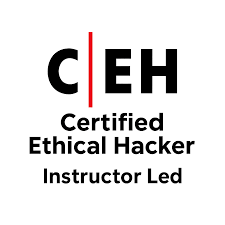Palo Alto Training – Learn Palo Alto Firewalls in 2025

Introduction : À l’ère numérique actuelle, la cybersécurité est essentielle pour protéger les informations sensibles et maintenir la confiance dans les systèmes technologiques. Parmi les acteurs clés de ce domaine se trouvent les Hackers Éthiques Certifiés (CEH), des professionnels qui utilisent leurs compétences techniques pour identifier les vulnérabilités et se protéger contre les attaques malveillantes. […]

À l’ère numérique actuelle, la cybersécurité est essentielle pour protéger les informations sensibles et maintenir la confiance dans les systèmes technologiques. Parmi les acteurs clés de ce domaine se trouvent les Hackers Éthiques Certifiés (CEH), des professionnels qui utilisent leurs compétences techniques pour identifier les vulnérabilités et se protéger contre les attaques malveillantes. Cependant, avec le nombre croissant de hackers éthiques, il devient essentiel de se démarquer dans ce domaine compétitif. Cet article explore des stratégies concrètes pour se distinguer en tant que Hacker Éthique Certifié, démystifie les idées reçues et met en lumière les tendances émergentes qui façonnent l’avenir de cette profession dynamique.
Se spécialiser dans des domaines émergents peut vous rendre indispensable dans l’industrie de la cybersécurité. Voici quelques domaines à envisager :
Se concentrer sur des domaines de niche vous permet de vous positionner en tant qu’expert incontournable dans ces domaines critiques.
Le réseautage est essentiel pour évoluer dans le domaine du hacking éthique. Voici comment élargir votre cercle professionnel :
Un réseau solide peut ouvrir de nouvelles opportunités, offrir un mentorat et favoriser des collaborations.
Bien que la certification CEH constitue une base solide, des certifications supplémentaires peuvent approfondir votre expertise et valider vos compétences. Certaines certifications recommandées incluent :
Obtenir plusieurs certifications démontre votre engagement envers la croissance continue et l’apprentissage.
La cybersécurité est un domaine en constante évolution, et il est essentiel de se tenir informé des nouvelles tendances. Voici comment rester à jour :
Être informé des menaces émergentes vous permet de rester adaptable et préparé aux nouveaux défis.
Malgré la reconnaissance croissante des hackers éthiques, plusieurs idées reçues persistent. Décryptons quelques mythes courants :
C’est l’un des plus grands mythes. Les hackers éthiques opèrent dans des limites légales et éthiques pour protéger les systèmes, tandis que les hackers malveillants exploitent ces vulnérabilités à des fins personnelles.
Bien qu’une formation technique soit utile, de nombreux hackers éthiques viennent de domaines non techniques et acquièrent leurs compétences par la formation et la pratique.
Obtenir une certification est seulement le début de votre parcours. Les hackers éthiques doivent s’engager dans un apprentissage continu pour suivre l’évolution rapide du paysage de la cybersécurité.
À mesure que la technologie évolue, le rôle des hackers éthiques devient encore plus crucial. Voici quelques tendances qui façonnent l’avenir de ce domaine :
Les hackers utilisent de plus en plus l’IA pour automatiser les attaques. Il est donc essentiel que les hackers éthiques exploitent ces mêmes technologies pour détecter et contrer les menaces.
Le passage aux solutions basées sur le cloud exige une expertise dans la sécurisation des infrastructures cloud. Les hackers éthiques joueront un rôle clé dans la prévention des violations de données dans le cloud.
Avec des milliards de dispositifs IoT en circulation, la sécurisation de ces systèmes interconnectés devient un défi croissant. Les hackers éthiques devront adapter leurs compétences pour protéger ces réseaux.
L’informatique quantique pourrait rendre obsolètes les méthodes de chiffrement traditionnelles. Les hackers éthiques devront développer des solutions résistantes aux attaques quantiques pour garantir la sécurité.
Une carrière dans le hacking éthique est à la fois gratifiante et impactante. Elle combine des compétences techniques avec de la créativité pour résoudre des problèmes complexes et sécuriser le monde numérique. En développant des compétences de niche, en construisant un réseau solide, en poursuivant des certifications supplémentaires et en restant informé des tendances émergentes, vous pouvez vous distinguer en tant que Hacker Éthique Certifié. À mesure que la cybersécurité devient de plus en plus cruciale, votre rôle de hacker éthique contribuera à protéger les organisations et les individus des menaces de demain.
Get certified with industry-leading cybersecurity certifications from EC-Council, PECB, Palo Alto Networks, and more.

Learn from world-class instructors Collaborate with top professionals Advanced training...

The CEH is the world's leading cybersecurity certification, recognized by...

Onsite training course Led by an instructor Interactive sessions

Asynchronous, self-study environment Video-streaming format Flexible learning schedule
Adding {{itemName}} to cart
Added {{itemName}} to cart

